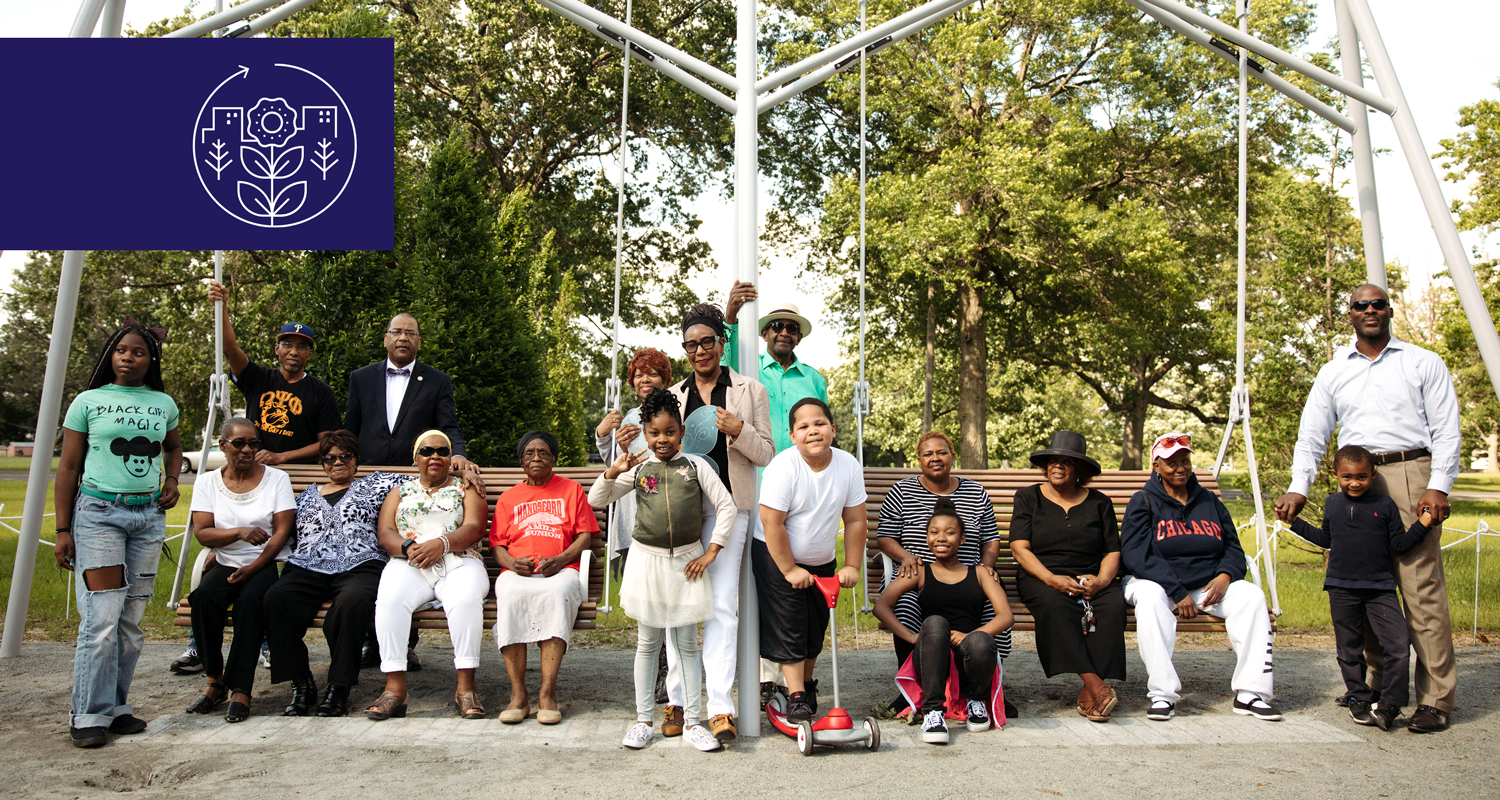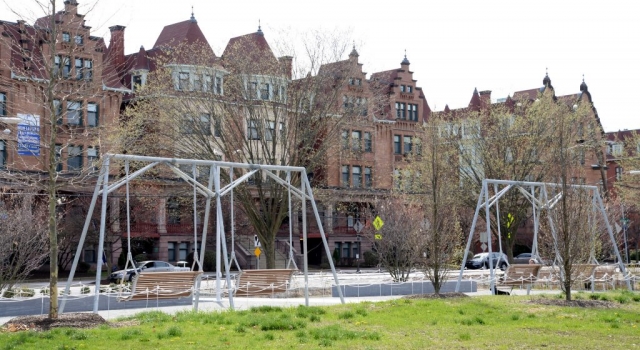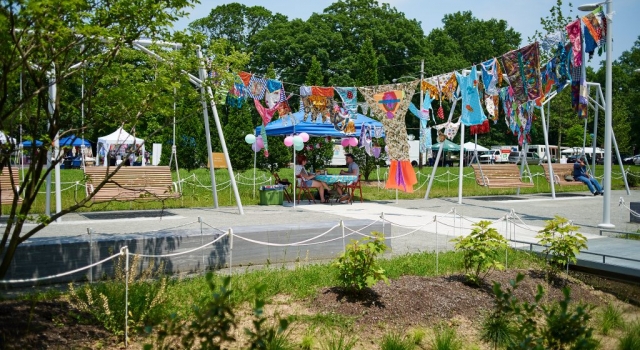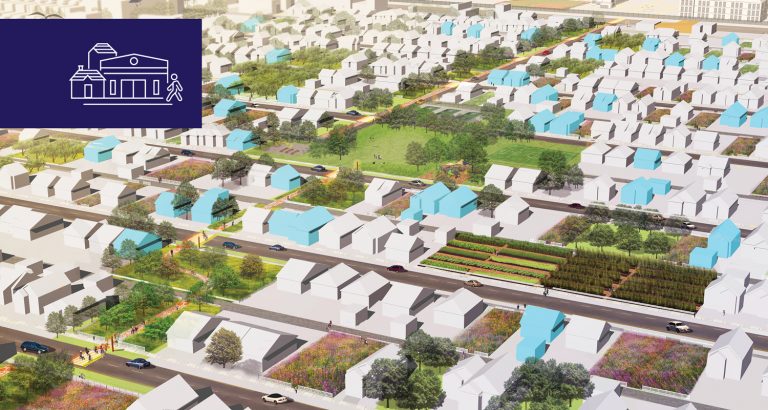Ecological benefits are an important though often overlooked type of value that civic assets can deliver to communities.
In Philadelphia, an ongoing partnership between the Centennial Parkside Community Development Corporation (CPCDC) and the Fairmount Park Conservancy (FPC) shows how investment in civic space can benefit both the neighborhood and the broader ecosystem. Through the Centennial Commons restoration project in West Philadelphia, the FPC and the CPCDC have worked together to create Parkside Edge—a string of small gardens, porch swings and benches that serves as a bridge between the historically under-resourced Parkside neighborhood and the park itself. The project was designed to meet residents’ desire for more outdoor gathering space that was both accessible and aesthetically pleasing.
In addition to providing more green space for the neighborhood, Parkside Edge also helps manage stormwater runoff with rain gardens of indigenous plants that naturally filter rainwater and keep pollutants out of nearby waterways. The rain gardens were funded and constructed by the Philadelphia Water Department as part of the city’s Green City, Clean Waters initiative. The FPC hires and trains Parkside residents to maintain these spaces, creating much-needed jobs and fostering a stronger sense of stewardship in the neighborhood. Meanwhile, the CPCDC is exploring how the neighborhood might leverage its underutilized land by installing solar arrays to sell energy to nearby businesses and institutions. This commercial model could provide a sustainable funding source for CPCDC by supporting the transition to clean energy sources.
LESSONS LEARNED
Ecological benefits increase the value of civic investments. Given the critical importance of the natural environment, potential ecological benefits are an important consideration for any investment in public space. The Parkside Edge rain gardens offer a strong example of an investment that improves residents’ quality of life while also supporting the regional ecosystem. Likewise, the CPCDC’s foray into commercial solar energy production uses existing open space in the neighborhood to drive adoption of renewable energy and create an ongoing funding stream for future investments in the community.
Take advantage of efforts that are already underway. Through its partnership with the Water Department, Parkside Edge was able to increase the ecological benefit delivered to the surrounding neighborhood at no cost to the project. The example of Parkside Edge shows how leveraging planned city investments in green stormwater infrastructure can enhance civic assets’ positive impact on an area’s ecosystem.
Case studies crafted in partnership with The Aspen Institute’s Center for Urban Innovation. With special thanks to Jennifer Bradley and Jessica Lee.
Lead photo provided by Neal Santos and WHYY Plan Philly.





